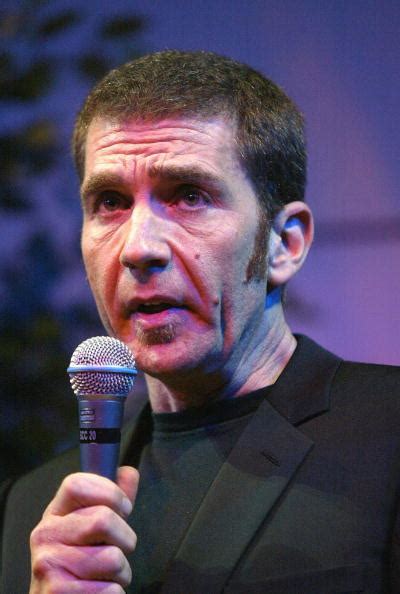A Quote by J. G. Ballard
Hell is out of fashion - institutional hells at any rate. The populated infernos of the 20th century are more private affairs, the gaps between the bars are the sutures of one's own skull. A valid hell is one from which there is a possibility of redemption, even if this is never achieved, the dungeons of an architecture of grace whose spires point to some kind of heaven. The institutional hells of the present century are reached with one-way tickets, marked Nagasaki and Buchenwald, worlds of terminal horror even more final than the grave.
Quote Topics
Achieved
Affairs
Any
Architecture
Bars
Between
Buchenwald
Century
Dungeons
Even
Fashion
Final
Gaps
Grace
Grave
Heaven
Hell
Hell Is
Horror
Institutional
Kind
Marked
More
Nagasaki
Never
One-Way
Out
Own
Point
Possibility
Present
Private
Rate
Reached
Redemption
Skull
Some
Spires
Terminal
Than
Tickets
Valid
Way
Which
Whose
Worlds
Related Quotes
There is a choice before us as people who live in a great world, so knit together that even America cannot stand quite outside it, or act as though it were situated somewhere on the moon! That choice is a choice - let me put it quite brutally - between heaven and hell. ... But it is not a choice between a heaven or a hell beyond the grave; it is a choice between making heaven or making hell on this side of the grave, and in this world, here and now.
Why this is hell, nor am I out of it: Thinkst thou that I who saw the face of God, And tasted the eternal joys of heaven, Am not tormented with ten thousand hells In being deprived of everlasting bliss! . . . When all the world dissolves, And every creature shall be purified, All places shall be hell that are not heaven.
The different American experience of the 20th Century is crucial because the lesson of the century for Europe, which essentially is that the human condition is tragic, led it to have a build a welfare system and a set of laws and social arrangements that are more prophylactic than idealistic. It's not about building perfect futures; it's about preventing terrible pasts. I think that is something that Europeans in the second half of the 20th century knew in their bones and Americans never did, and it's one of the big differences between the two Western cultures.
D-Day represents the greatest achievement of the american people and system in the 20th century. It was the pivot point of the 20th century. It was the day on which the decision was made as to who was going to rule in this world in the second half of the 20th century. Is it going to be Nazism, is it going to be communism, or are the democracies going to prevail?
But learned people can analyze for me why I fear hell and their implication is that there is no hell. But I believe in hell. Hell seems a great deal more feasible to my weak mind than heaven. No doubt because hell is a more earth-seeming thing. I can fancy the tortures of the damned but I cannot imagine the disembodied souls hanging in a crystal for all eternity praising God.
I was really interested in 20th century communalism and alternative communities, the boom of communes in the 60s and 70s. That led me back to the 19th century. I was shocked to find what I would describe as far more utopian ideas in the 19th century than in the 20th century. Not only were the ideas so extreme, but surprising people were adopting them.
Visionary experience is not the same as mystical experience. Mystical experience is beyond the realm of opposites. Visionary experience is still within that realm. Heaven entails hell, and 'going to heaven' is no more liberation than is the descent into horror. Heaven is merely a vantage point from which the divine Ground can be more clearly seen than on the level of ordinary individual experience.






































